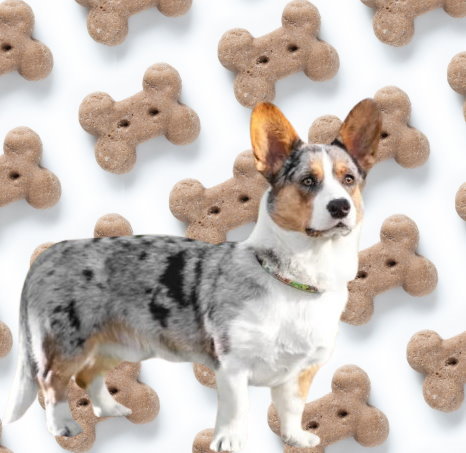Welcome to Dog Training Newbies !
Welcome to Dog Training Newbies !

Welcoming a new Corgi puppy into your home is an exciting and joyous time. However, just like any other breed, Corkies can experience certain health issues, including diarrhea. Diarrhea in puppies can be concerning, but with the right knowledge and proactive measures, you can effectively manage this condition. In this article, we will explore the causes of Corgi puppy diarrhea and provide helpful tips on how to deal with it.
UNDERSTANDING THE CAUSES:
Dietary Changes:
One of the common causes of diarrhea in Corgi puppies is a sudden change in their diet. Abruptly switching their food or introducing new treats can upset their sensitive digestive system. It is important to transition their diet gradually to avoid gastrointestinal disturbances.
Food Intolerances and Allergies:
Corgi puppies, like any other breed, can develop food intolerances or allergies. Certain ingredients in their food can trigger an adverse reaction, leading to diarrhea. Identifying and eliminating the allergen from their diet is crucial in managing this condition.
Parasites and Infections:
Internal parasites, such as worms or protozoa, can cause diarrhea in puppies. Additionally, viral or bacterial infections can also contribute to gastrointestinal disturbances. Regular deworming and practicing good hygiene can help prevent these issues.
Stress and Anxiety:
Puppies, especially when adjusting to a new environment or experiencing significant changes, may develop stress-induced diarrhea. Separation anxiety, travel, or sudden disruptions in their routine can trigger this response. Calming techniques and gradual acclimatization can help alleviate their stress and reduce episodes of diarrhea.


DEALING WITH Corgi PUPPY DIARRHEA:
Assess the Severity:
Mild cases of diarrhea in puppies can often be managed at home, while severe or persistent cases may require veterinary attention. Monitor your Corgi puppy's symptoms, including the frequency and consistency of the diarrhea, any signs of dehydration, or other accompanying symptoms like vomiting or lethargy.Provide Adequate Hydration:
Diarrhea can lead to dehydration, so it is crucial to ensure your puppy stays hydrated. Offer small amounts of water frequently to prevent overwhelming their stomach. You can also try giving them a rehydration solution specially formulated for puppies, which can be found at your local pet store or recommended by your veterinarian.
Adjust Their Diet:
Temporarily switching your Corgi puppy to a bland diet can help soothe their digestive system. Boiled chicken or lean ground beef with plain white rice can be easily digestible and provide the necessary nutrients. Slowly reintroduce their regular food once their stools start to firm up.
Probiotics and Digestive Enzymes:
Consulting with your veterinarian about adding probiotics or digestive enzymes to your puppy's diet can help restore the balance of good bacteria in their gut. These supplements can aid in improving digestion and reducing the duration of diarrhea.
Maintain a Consistent Routine:
Establishing a regular feeding schedule and sticking to it can help regulate your Corgi puppy's bowel movements. Avoid giving them table scraps or sudden changes in their diet. Additionally, ensure they have a safe and comfortable space to eliminate outside, reinforcing proper potty training habits.
Veterinary Consultation:
If your Corgi puppy's diarrhea persists, worsens, or is accompanied by other concerning symptoms, it is crucial to seek veterinary advice. Your veterinarian can conduct diagnostic tests to identify any underlying health issues and provide appropriate treatment or medication if necessary.
Dealing with Corgi puppy diarrhea can be a challenging experience, but with patience, proactive measures, and proper care, you can help your furry friend overcome this temporary setback. By understanding the potential causes and implementing the suggested tips, you can effectively manage and alleviate diarrhea in your Corgi puppy, ensuring their overall health and well-being. Remember, if in doubt or if the condition persists, always consult with your veterinarian for personalized guidance and professional assistance.